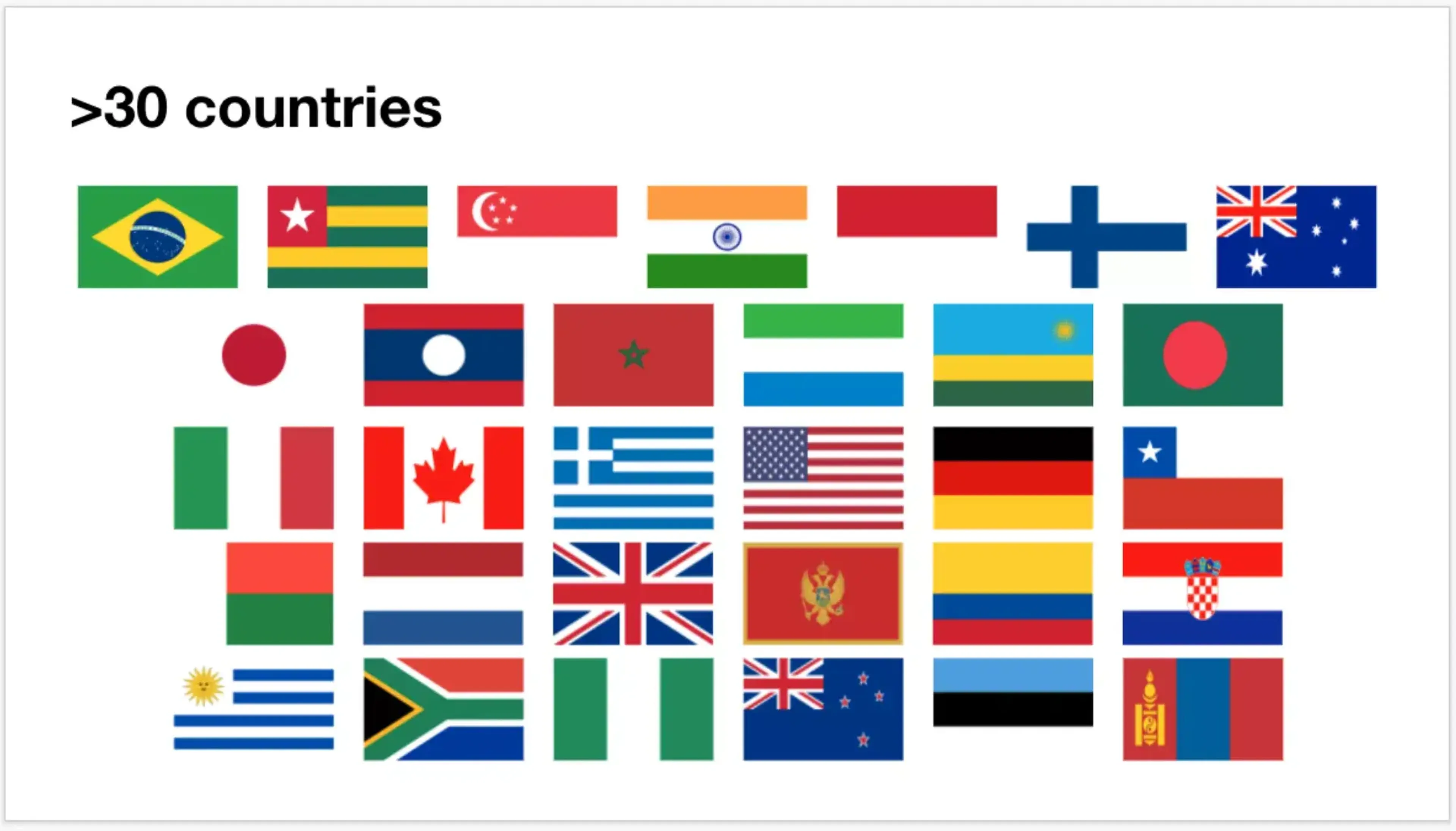Emerging themes from the 4th Digital Services Convening
Three weeks ago we co-hosted the 4th Digital Services Convening with the Harvard Kennedy School. This year we had over 100 participants from around 47 digital service groups around the world. These teams have achieved a considerable amount: we published a blog post about their successes last week. In this post, we want to share a few themes that were discussed at this year’s Convening.

The pandemic has shown that digital can’t be sidelined. But can teams retain the gains made during the pandemic?
Many teams have been given more authority due to the pandemic through the expansion of their scope, ability to change traditional ways of working and increased funding. Governments have found that digital cannot be a capability tucked away at arm’s length. It’s critical to public service delivery and crisis response.
However we still have work to do in ensuring some of the gains made during the last year are retained. For example whilst some teams have secured more funding, for others funding has been reduced, not sustained or isn’t going to the right places.
All teams are navigating prioritisation
Many digital teams have been inundated by requests for help and were facing the challenge of prioritisation, particularly because of the demand from Covid related services. Teams were making decisions based on a number of factors. A new digital team has been prioritising projects based on gaining momentum within government. Another much older team prioritised projects based on efficiency, using their position at the centre of government to replace what was being done in ten different ways across ministries with one product. Finally, one team said they had come to a prioritisation rule based on learning what they were good at, they then built their own ‘checklist’ to help them with their decision making.
Teams are delivering the North Star in different ways
The new wave of digital teams are adopting proven practices - agile ways of working, iterating fast and demonstrating progress quickly. Many units share a similar North Star – to build cross-government platforms, and so create common infrastructure and deeper institutional change.
But they diverge on where they are on that journey, and how they’re getting there. Teams are using different levers, adopting hybrid delivery methods that make the most of local capability, and locating themselves in different parts of government. Through learning from the first wave of teams, they’ve also avoided some pitfalls. For example, they're not rushing into tackling legacy technology, or from the outset they’re working closely with the people they will eventually hand the service over to.
Gaining momentum: protocols, open source, playbooks for public servants?
Keynote speaker Pramod Varma kicked off the Convening by noting that thinking in this space started with applications, moved to platforms, and today teams should consider protocols (the Harvard team will be unpacking this idea in the Convening report). There is an explosion of interest in using open source software in government. (And Public Digital published a new paper on this topic last week.)
We heard from a panel of public servants based in non-digital teams and explored their perspective on working with digital service units and the playbooks and other resources those teams provide. How easy was it to follow these ways of working for public servants outside digital units? Are service standards enough? Should there be a playbook for public servants who aren’t in digital roles to help them navigate digital transformation? Many governments have also been setting up their own Digital Academies to raise digital awareness across government.
Hearing these perspectives and bringing others with us will inevitably widen the impact of digital ways of working and deliver better outcomes to citizens.
This community will be increasingly important in future
Teams are grappling with familiar delivery challenges, including capacity building, recruitment, and procurement reform. But it’s also true that many aspects of digital transformation have become much easier to do as there are existing lessons to draw on and teams don’t have to start from scratch.
There are abundant examples of playbooks, strategies, tools and frameworks for teams to use and they are, for example the Colorado Digital Service adopted a hiring strategy based on the one employed by the United States Digital Service. Japan’s Ministry of Economy, Trade and Industry created a technical stack based on lessons from India, Singapore and Estonia and the West Java team shadowed the UK’s Government Digital Service to learn from their ways of working.
The sheer growth of the community and the commonalities in the stories told reiterated how important this community will be going forward. We must continue to share our experiences with each other and we now have tools to do this, whether it's sharing code, communicating our strategy using levers, or exchanging directly with a government digital team in another jurisdiction.
The Convening ended with current and former leaders of digital service units noting that when teams are at a low point they should remember how far they have come. There are now many people fighting for their funding and supporting their work inside and outside government, in dozens of countries around the world. Much has been achieved, and it’s exciting that there is much to do still.